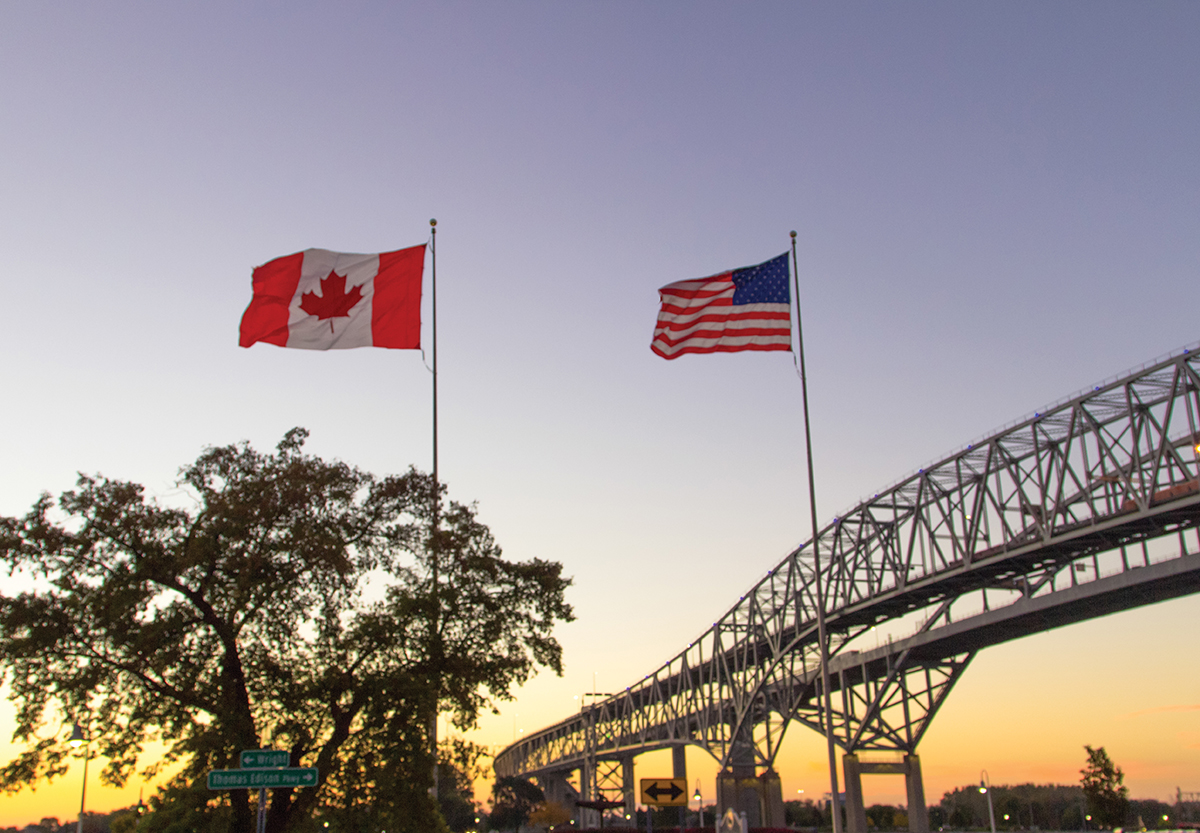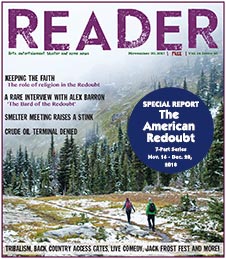Selkirk Loop Board calls for ‘swift resolution’ to U.S.-Canada trade war
By Zach Hagadone
Reader Staff
As the fallout from President Donald Trump’s tariff policies continues to reverberate in markets around the world, closer to home the International Selkirk Loop Board of Directors issued an open letter June 6 “emphasizing the critical importance of cross-border tourism and urging policymakers to reach a swift resolution on any trade discussions that could negatively impact the economies of communities along the U.S.-Canada border.”
Trump sparked outrage across the nation’s neighbor to the north and longtime ally first with rhetoric about Canada becoming the “51st state,” then with 25% tariffs on a range of Canadian goods. That was in February. In March, then-Canadian Prime Minister Justin Trudeau vowed to reciprocate with 25% tariffs on U.S. imports and urged his fellow citizens to buy Canadian.
By April, news outlets — including the Reader — were reporting that border crossings had reached a low not seen since the COVID-19 pandemic. According to figures cited by Canada-based CTV News in April, the number of Canadians crossing the border into the U.S. fell 900,000 from March 2024. Crossings by passenger vehicles and pedestrians had fallen about 26% — the lowest recorded since 2022.
Data specific to the Eastport and Porthill border stations, in Boundary County, indicated that there were between 23,000 and 24,000 monthly crossings from Canada between November 2024 and January 2025. However, that number fell to 19,100 in February, for a 12.4% decrease year over year and a 17% decline from January to February.
Relations between the U.S. and Canada have not improved since then, with Trump most recently announcing that tariffs on Canadian steel and aluminum would rise to 50%, while sales of Canadian-made vehicles fell by nearly 23% in April, according to The New York Times.
Canadian Prime Minister Mark Carney, who won the federal election in April, called those moves “unjustified and unlawful,” the BBC reported June 2.
In a story on the souring cross-border relationship published April 17 in the Reader, two Creston, B.C. residents said that they would be skipping their annual visits to Schweitzer “nor even crossing the border,” they wrote in a letter sent to Sandpoint Mayor Jeremy Grimm in February and shared with the Reader.
They credited that decision to “the threats to the sovereignty of Canada from your president.”
“That ‘51st state’ stuff was just over the top,” said Nancy, who asked that her last name be withheld.
“It was a heartbreaking decision, but an easy decision,” she later added. “Country first.”
Another Creston area resident, named Mike, who also asked that his last name be omitted, swore never to travel to the U.S. again and committed not to buy U.S.-made products.
“For your readers, to make it especially clear, the tariffs were hurtful, but the real issue is when your president said he was going to break our economy and make us into the 51st state,” Mike told the Reader. “That crosses a huge line in Canada. I don’t think I’m ever going back.”
The International Selkirk Loop is a nonprofit tourism marketing association that extends across the border to include communities in northeast Washington, North Idaho and the West Kootenays, in British Columbia. Towns connected by the 280-mile scenic driving loop range from Bonners Ferry and Sandpoint; to Metaline Falls and Newport, Wash.; and Creston, Nelson and Salmo, B.C. — “all of which rely on seamless cross-border travel to support tourism, small businesses and cultural exchange,” the Selkirk Loop Board of Directors stated in a June 6 announcement of the letter, which was sent to Idaho and Washington congressional members, as well as the member of Parliament representing the West Kootenays.
“Our region thrives on the friendships and economic ties that span both sides of the border,” stated Board Chair Carla Ahern. “For generations, our communities have welcomed visitors from both nations, fostering not just economic prosperity but also the deep sense of kinship that has defined U.S.-Canada relations for over 200 years.”
In addition to finding a “swift and beneficial resolution” to the trade war for the protection of small businesses reliant on cross-border tourism, the board also called for “ongoing dialogue between government leaders, tourism stakeholders and local businesses to protect and enhance the economic and cultural relationships that sustain the region.”
“The economic well-being of our border communities depends on an open and cooperative relationship between our two countries,” Ahern added. “Trade disputes and travel restrictions threaten not only our businesses but also the generations of good-neighborly trust and collaboration that have existed here for centuries.”









 Coming up this week! Don’t miss Live Music, the Summer Sampler, the Art Party, Monarch Grind, the Sandpoint Renaissance Faire, and more! See the full list of events in the
Coming up this week! Don’t miss Live Music, the Summer Sampler, the Art Party, Monarch Grind, the Sandpoint Renaissance Faire, and more! See the full list of events in the 